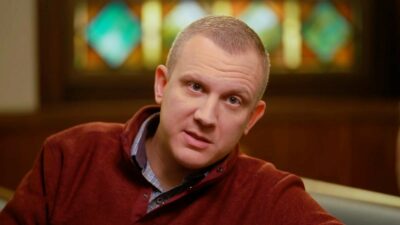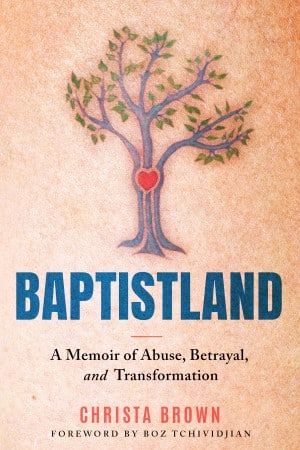You don’t teach college students as long as I did without being asked from time to time to give relationship advice. And you don’t teach literature to college students as long as I did without being often tempted to offer relationship advice based on the real-life applications of good literature.
One thing I’ve found myself saying to students repeatedly over the years is, “Don’t go into a relationship hoping the other person will change for you.” Only in fairy tales do frogs turn into princes or old hags into maidens with true love’s kiss. Only in romance novels do bad boys become great men because they found a good woman.
To be sure, most of us grow and mature over the course of life. But a change in essential character isn’t likely to take place. It certainly shouldn’t be expected. Thus, I advise the young and in love, don’t bet on it. As Maya Angelou famously put it, “When someone shows you who they are, believe them the first time.”
Another point I’ve made in some of my harder conversations with young people is that when you think a person with a bad history (whether that is a history of unfaithfulness, abusive behavior or any kind of character issue) will change for you, there’s an element of self-pride there. No one (apart from Jesus) is “special” enough to transform another person.
Such is the advice I’ve offered countless times to others over the years.
Your tax-deductible gift helps our journalists report the truth and hold Christian leaders and organizations accountable. Give a gift of $30 or more to The Roys Report this month, and you will receive a copy of “Baptistland: A Memoir of Abuse, Betrayal, and Transformation” by Christa Brown. To donate, click here.

Then, the other day, I suddenly realized that all along I had failed to follow my own advice.
This epiphany came to me while having meaningful conversations during a retreat. (Retreats are great for bringing clarity, aren’t they?) Then, a few days later, Katelyn Beaty posted a Substack newsletter that provided even more clarity. In “No Woman Can Crack the Evangelical Bro Code,” Beaty writes of the well-intended but futile efforts by evangelical women to change institutional cultures constructed by “old boy networks.” She writes:
When things get hard, she can put her head down and tell herself it’s best and perhaps more Christian to stay in the institution and reform from within than to leave for her own well-being. God placed her here for a reason. Reforming from within often means carrying a lonely psychological and spiritual burden, while persistently ignoring one’s own gut and intuition, because how will this place ever change if not for her?
This insight has just as much application in areas of change beyond gender relations.
Many of us who seek change and to be agents of change do so by putting our hopes in the next generation. But in places where the old guard is grooming the next generation precisely in order to replace themselves with replicas of themselves, such hopes are in vain.

I thought for a long time I could help the church (or at least my slice of it) change. I could take a community and denomination rife with racism, cronyism, misogyny and abuse and change it.
How foolish I was.
And prideful, too, I guess.
Now, to be clear, no human institution or community is perfect. Every human institution and community (and person) can be and is influenced by others (whether for good or ill). I firmly believe we can and do make a difference by our mere existence, our presence and our very person wherever we are. This is what it means to be human, to be in this world and to be charged by God to be faithful to him and to one another.
But it is as true of institutions as it is of people: We ought not go in expecting to change them. Instead we must accept them for who and what they are (or aren’t) and enter into relationships (or not) based on who and what they already are.
Unlike fairy tales and romance novels, more complex literature offers us more realistic examples of relational evolution. In “Gone With the Wind,” Rhett Butler and Scarlett O’Hara end up marrying the very person the other is — and somehow seem surprised the other doesn’t change much. Jane Eyre falls passionately in love with a man whose terms for love require her to violate her own Christian conscience. She flees, and though the two are reunited, it comes after her lover has been reformed under a discipline only tragedy can render. In “Pride and Prejudice,” the male characters don’t change. Rather, Elizabeth Bennet comes to recognize the errors in her own judgments, and she arrives at a better understanding of the people around her — and herself.
Certainly, even as with the intelligent and perceptive Lizzie Bennet, our judgments can fail, and our discernment can falter. Sometimes we don’t see who or what a person — or institution — is because of our own history, experiences, upbringing, expectations and blind spots. Such factors can’t be avoided. But being aware of our limited perspective can make us more likely to see and face new understandings when they are made possible.
And to be sure, there are other times when people don’t show who they are at first. Some are skilled with smoke and mirrors.
And most of the time — people, places, events and life being as complicated as they are — a combination of these realities is probably at play.
Just as important is owning our own misplaced trust in ourselves or self-pride in thinking our influence might be greater than it possibly could be; it’s also important not to bear the responsibility for what others have done or failed to do.
Ultimately, our responsibility is to know when it’s time to shake the dust off our feet (Matthew 10:14) — and then do it — in order that we might find the people and places we can embrace as they are.
This commentary, which was originally published by Religion News Service, does not necessarily reflect the opinions of The Roys Report.

Karen Swallow Prior, Ph. D., is a reader, writer, professor, and columnist at Religion News Service. She is the author of several best-selling books. Her most recent is The Evangelical Imagination: How Stories, Images, and Metaphors Created a Culture in Crisis. She lives in Virginia.





















18 Responses
This is tried and true wisdom.
Since the Protestant Reformation, how many have tried and failed to reform an institution from within? The new church or denomination where you seek refuge today may already be or quickly become the cesspool you fled. From T. S. Eliot’s Four Quartets: The only hope, or else despair, Lies in the choice of pyre or pyre-… We only live, only suspire consumed by either fire or fire.
I cannot tell you how much I needed and appreciated this article. I have always seen myself as an advocate. I have worked hard on educating pastors about abuse and trauma. One of the saddest things for me is that a woman can be in lots of leadership positions outside of the church, but she becomes mute or her skills are not needed inside the church. As a “seasoned” woman I feel the need to speak so women after me will have a chance. I am so incredibly discouraged and frankly have very little hope. I needed this article to encourage me to quit banging my head against the wall. I don’t know where to go from here. I told my pastor if the church does not change they will be losing the next generations of women. When I was in graduate school, I wrote a term paper on Jesus Christ, the first women’s liberator! If the church would only follow Jesus and His view of women. How long, O Lord?
So why do people (we) stay in institutions they (we) will never be able to change?
It is definitely a very difficult road processing how to respond to abuses of power… it’s probably pretty rare, but some are called to stay… I think of Erasmus… these are often prophetic voices & I think of Ezekiel 3…
Sadly, what I see over & over again is an institutionalized authoritarianism making every effort to silence prophetic voices because these voices are a threat to the status quo of institutionalized power the leaders are benefiting from at the expense of the priesthood of ALL believers.
“ Sadly, what I see over & over again is an institutionalized authoritarianism making every effort to silence prophetic voices because these voices are a threat to the status quo of institutionalized power the leaders are benefiting from at the expense of the priesthood of ALL believers.”
True, and what I’ve seen/experienced as well.
Leadership (church, govt, family, bloggers, etc) that relies on censorship to silence and control is immature, toxic, and ultimately fears the truth. I’ve known people to stay in such environments for a season for the sole purpose of waking others up.
I have been telling people this for a long time. Staying in a dysfunctional institution in hopes of changing it is akin to enabling the dysfunction. Leave and go to a better place and gift them with your talent and financed.
Excellent piece of writing! Thank you for publishing it.
“But a change in essential character isn’t likely to take place. It certainly shouldn’t be expected.”
I’ve spent many years assuming that those in church leadership had the character to match the title or position. The stories from the past few years of church leader after church leader revealing their poor character has been unsettling, but necessary. Christians would be well served to abandon their current love affair with charisma and look to leaders that exemplify good character.
Because while you’re attempting to change it,
IT WILL BE CHANGING YOU. INTO ITS IMAGE.
To quote an old Japanese proverb, “The nail that sticks out, gets hammered down.” It is an exercise in futility to reform it. The best bet would be to raze it to the ground completely and start over from scratch.
More solid wisdom from the Notorious KSP!
The awareness to believe someone when they show you who they are is something that took me a long time to put into practice but is now a guiding principle for me.
I retain a great respect for those who can remain in such institutions with the hope of affecting change, whistleblowing and advocating for the abused, but the line between doing so and being compromised by supporting such institutions is a fine one indeed.
I’m not disagreeing, but somehow this saddens me, as I’d have hoped that the doctrine of Sola Scriptura/1st Fundamental would mean that we would do better at correcting our mistakes. Maybe I am too optimistic. To be fair to my “Pollyanna” nature (which gets into fights with my pessimism at times), I have had some success at my church moving the dial a bit on issues of child sexual abuse–more or less I told my own story of getting an impromptu sex ed lesson (no touching thankfully) from a babysitter, and it was impressive how peoples’ perspectives change.
That noted, I have seen in other areas how local culture is so darned tenacious, it’s horrifying. There are times I want to scream “We’ve been over this–it’s not a Biblical reality. Can we drop this already?”. (on any number of topics)
As I still tend to doubt myself for walking away from a white evangelical church, I needed to read this today. Very wise. Very true.
I often wrestle with this as someone with a more analytical/intellectual bent in a tradition (Pentecostalism) that has often denigrated the life of the mind.
Ever since I was a teen I’ve been told to stay and work inside the system. I haven’t regretted leaving any systems yet, such as school systems for homeschooling, or institutional church for organic church. If we can’t count on changing even one person, why should we waste our life trying to change giant institutions? Small is better anyway. Let’s start our own college…
When your eyes are finally open, leave. People will be mad, but they will not ask you to return. They realize you know too much.
An underrated factor in all of this is just that so many church officers just don’t put 2 and 2 together. When I was asked to leave my Central Illinois Converge church because I resisted Hillsong and
Bethel Redding junk, I ran into church members who asked why I left. And it dawned on me that in a town or 30 OOO, the church board didn’t think about me encountering anyone from my old church!(I’ve met several already).